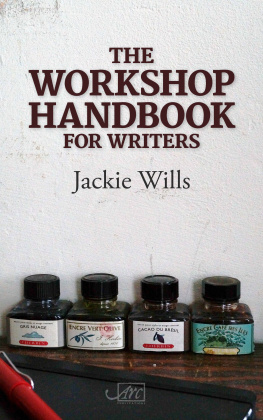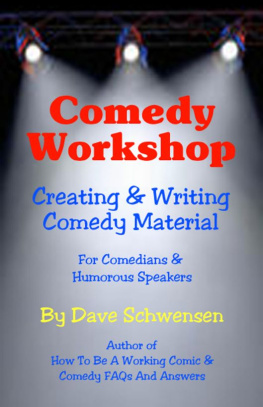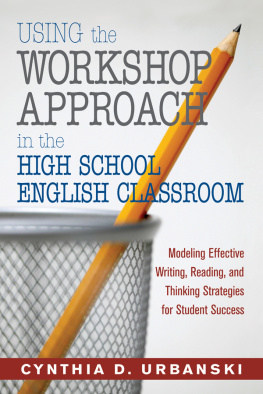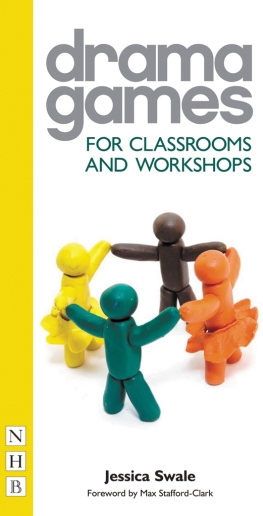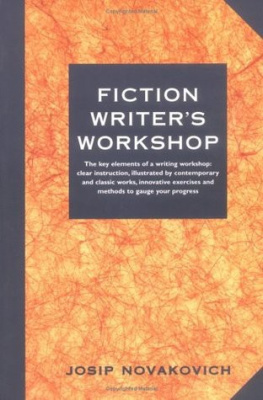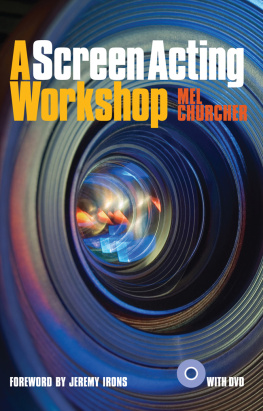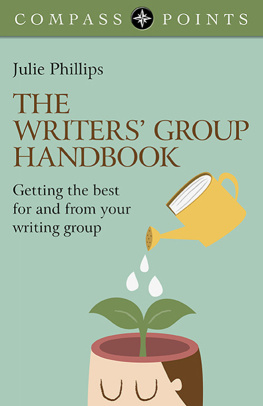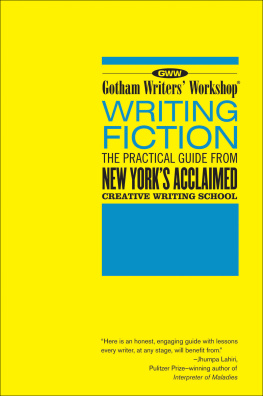INTRODUCTION
The results were incredible. The workshops raised discussion, laughter, and openness. Our young people were encouraged to express themselves and their emotions by writing poems. They went from saying I wont or I cant to I did it!
CHRIS SYLVESTER , Beechfield Secure Unit, Crawley, 1999.
The first writing workshop I went to was at South Hill Park arts centre in Bracknell in the 1980s led by Irish poet Matthew Sweeney. Once a week a small group of us was introduced to some of Matthews favourite writers and brought our own work for scrutiny. At the end of the course I read my poems in public for the first time and had work accepted by a magazine that immediately folded. It didnt matter the first poems I saw in print were in an iconic small magazine, The Echo Room, produced by poet Brendan Cleary whos since become a great friend.
Here, I share my experience of more than 20 years running workshops. I focus on what works and why. I deal with different settings like business, working in the community and schools, share pitfalls and risks.
This is a book about reading and sharing the work of other poets, as much as about writing. It is also a record of the trails Ive followed to expand a workshop idea. I rarely use my own poems in workshops because they are too familiar to me, although once or twice Ive shown how a poem evolves out of many drafts.
I include plans for workshops of 45 minutes, to residencies stretching for months: half-days, full days, a masterclass, week-long workshops, and short courses. I reflect on work with musicians and artists, in galleries, with orchestras, arts and business leaders, young refugees and homeless men, with young people who cannot speak and young people in a secure unit.
When I began, I learned on my feet. Luckily I never found myself in danger, but I had some strange, exploitative and stressful experiences.
Once I turned up to run a writing workshop with elderly people and discovered two were illiterate, two were blind and one was physically unable to write. I wasnt forewarned and hadnt asked the right questions. Id assumed the person inviting me would have thought it through. They hadnt.
The most challenging time was working with young people in a secure unit. It was brilliantly organised and I was well briefed. But Ive witnessed teachers marking at the back of the room and on one hot afternoon a teacher put her head on the table and fell asleep. I forgave her when I found out she was pregnant.
Freelancing is precarious. You are at the mercy of the inexperienced or the canny. One company wanted to grab the copyright of a course I developed. Some keep a date open until the last minute, and then cancel with no kill fee.
But then Ive spent weeks in the Devon and north Welsh countryside working alongside amazing poets to give young people experiences of writing theyll never forget. And moments in boardrooms where I believed poetry really could be an instrument of change.
CHAPTER ONE
STRUCTURE AND TONE
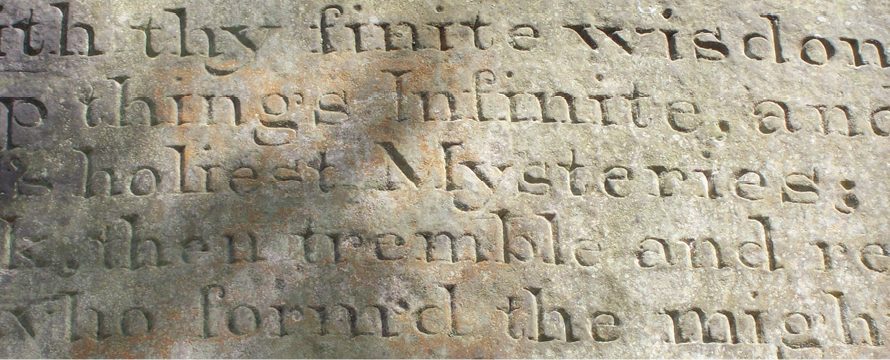
I learned how to run workshops by trying to mirror what Id experienced in the workshops I attended. Ive often been nervous, sometimes daunted and occasionally felt Id failed miserably. But at its best, a workshop leaves me feeling exhilarated because of the ideas, lines and metaphors that have been delivered around the table or in a circle of chairs.
SECTION 1
WHAT MAKES A WORKSHOP?
The room, for the time a workshop lasts, is a world. The writer puts the elements in place a quirky room, a view, a place with history, and a group of people.
I want a workshop to make me feel Im in the moment of a poem or story everyone sitting at the same table, feeling excited because well be creating something new.
For people taking part, the day is time out to stretch, concentrate on writing, so I make the tea, fill up water jugs, and get out plates and cutlery. They want to fill up pages, walk at lunchtime and come back with something to tell.
I remember my excitement being driven down the track to the Arvon Foundation in Yorkshire and the careful feedback of tutors James Berry and Vicki Feaver. I encountered writers Id never heard of in workshops with Matthew Sweeney. From a day at the South Bank Centre in London, I remember Liz Lochheads generous and relaxed approach and this has become a standard I aim for.

Figure 1.1 Tiles made by children at a workshop with potter Julian Belmonte
Photo by Julian Belmonte
ORGANISING IT YOURSELF
Most writers are invited to deliver workshops and dont have to deal with administration or publicity. Ive occasionally organized a workshop myself, but juggling bookings, fees, venue and publicity takes time and is risky because people drop out at the last minute. To put on your own workshop you need public liability insurance, payment in advance with no refunds if someone cancels, a reliable venue and a good network of people to spread the word. You also need to calculate the time it takes you to organize and add that into the cost.
Themed or specialized workshops attract attention. Ask writing friends what theyd like. Decide on numbers. Find a special place to put it on but when youre calculating what to charge, add up venue hire, your fee, travel, planning time and publicity costs. Warn participants it can only go ahead with a minimum number. Set a cut off date so if you dont break-even, you can cancel and refund.
WORKING FOR SOMEONE ELSE
Ive done workshops on beaches and in woods, in a stately home, a youth hostel, a touring youth bus, secure unit, galleries, Japanese garden, arboretum, school grounds, in pubs, libraries, day centres and museums. Once I heard someone say, "Lets put Jackie in the skate park." It didnt happen. Ive been asked to suggest themes, build a workshop around specific writers or ideas and develop a session on journal writing.
When someone rings or emails me, the first things I need to know are:
When is it?
Where?
How long do you want?
Whos it for?
Whats the fee?
I allow at least a day to develop new materials for a workshop, particularly if I am doing new research for a theme, or on writers I havent covered before. I expect my fee to cover preparation as well as the time Im delivering the workshop.
When I write a series of workshops I build in time for meetings face to face or on the phone to share a draft plan and amend it if necessary.
I want to know whos taking part and what will work for them. If its in a school, I need to know the students ages, if anyone has special needs. If its for adults are they beginners or experienced writers?
Im cautious if the organiser is putting on a workshop as an outreach activity maybe a drop in. The risk is that participants have no interest in writing but the organiser thinks it might be good for the clients. Perhaps she has never put on a writing event before but has found a source of funding.
So before undertaking an outreach project, I need to know if participants have been consulted, if theres a goal for the project e.g. book, recording, performance, who is responsible for the groups welfare/safety, who will be supporting me and how, that there are minimum and maximum numbers of participants and that the venues suitable.
Well-planned outreach work combined with workshop planning can deliver life-affirming and long reaching results.
MOMENTUM
- A good workshop has a momentum and a rhythm that keeps the creative process energetic.
Next page
